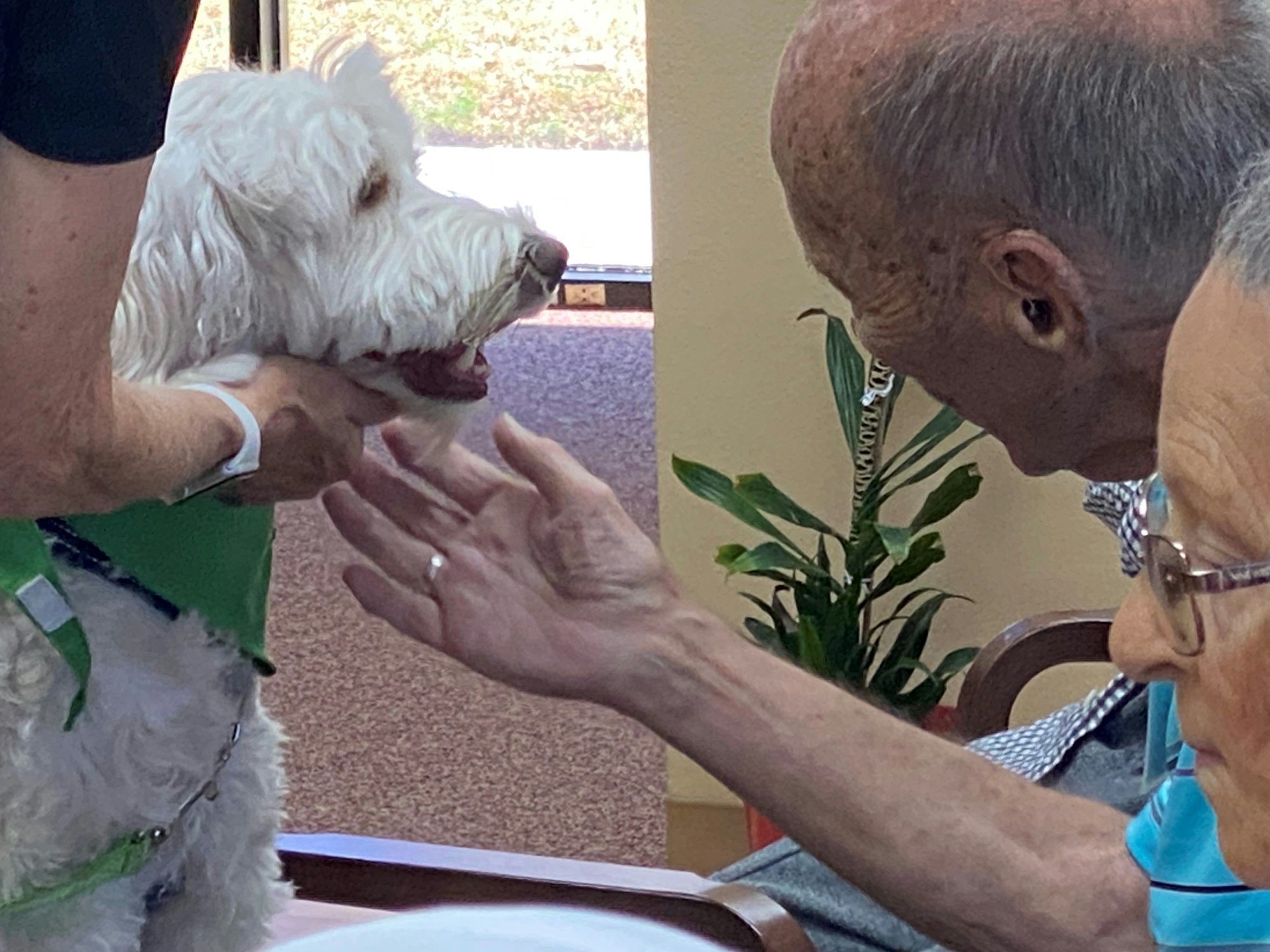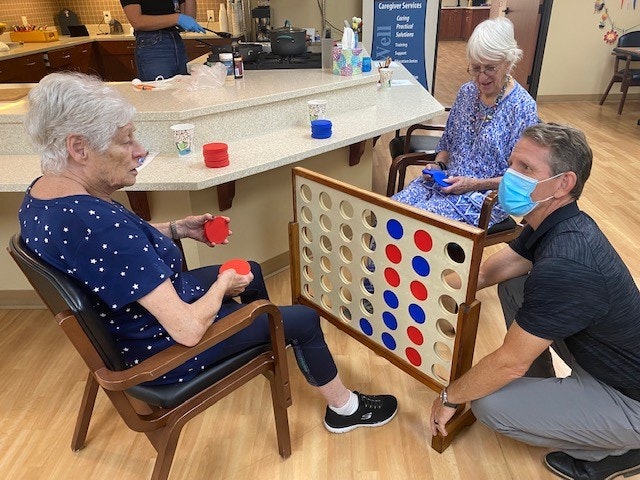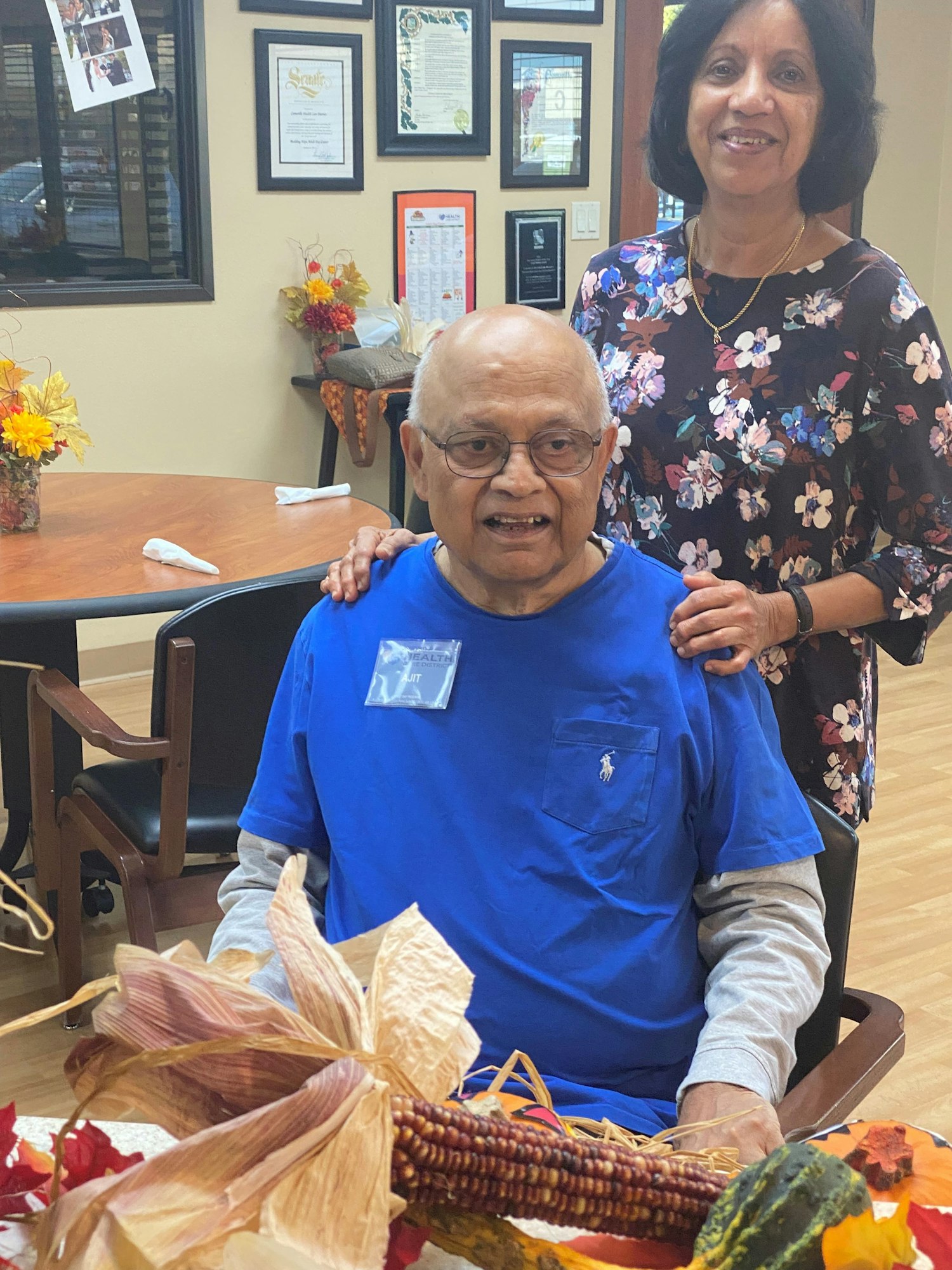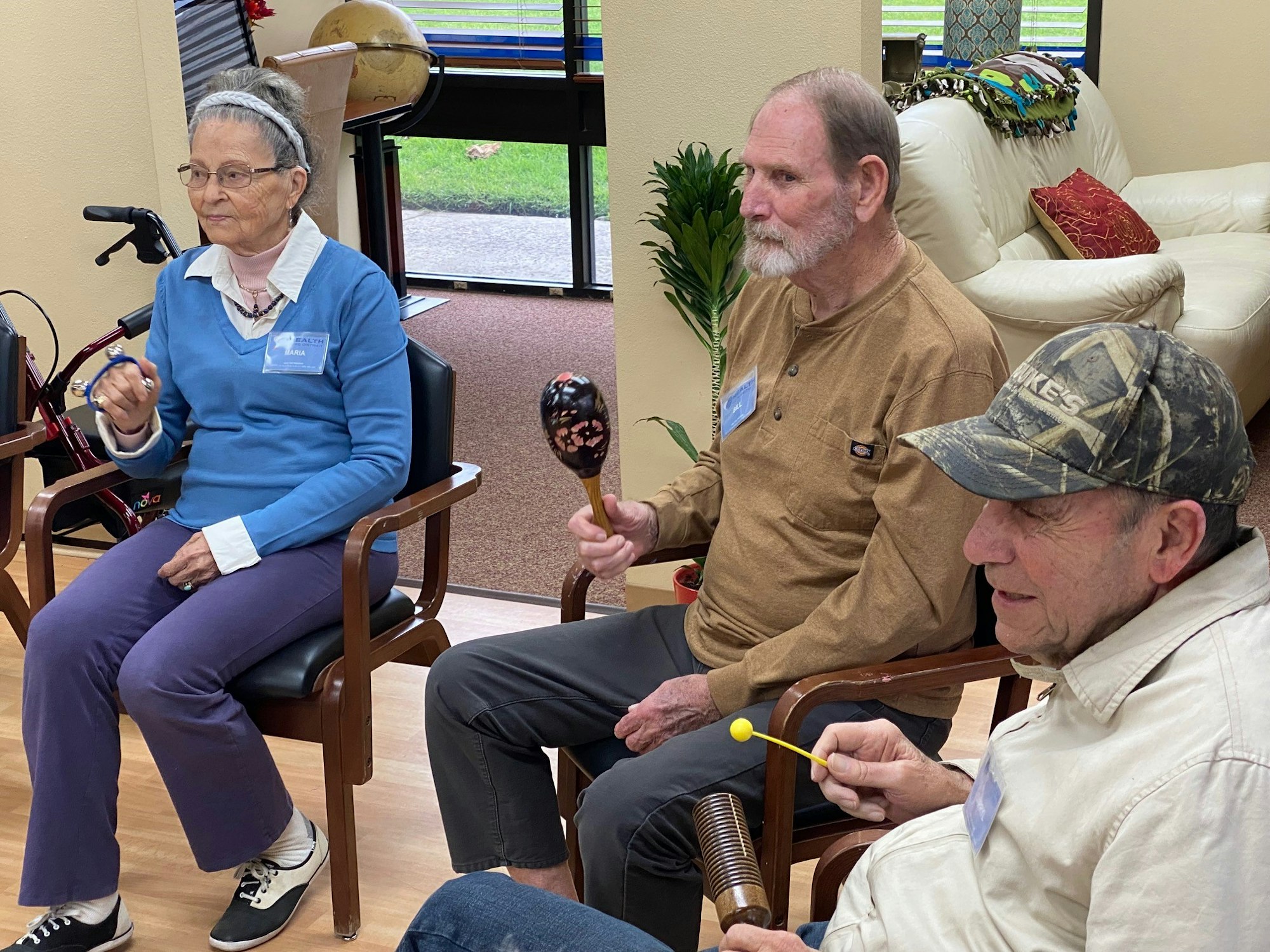Socialization, activities and exercise all important at our Adult Day Center


Clients in Camarillo Health Care District’s award-winning Adult Day Center look forward to spending time in a warm, inviting and home-like setting where activities are designed for socialization, mental and physical enrichment, recreation for all abilities, and most of all fun!
The Center is intentionally designed to provide a safe, respectful, and compassionate option for adults who benefit from additional care during the day due to health conditions such as Alzheimer’s disease, Parkinson’s disease, stroke, brain injury, decreasing mobility, isolation or loneliness. Additionally, the Center offers important respite time off for family caregivers and other family members.
Dementia is a general term for loss of memory, language, problem-solving and other thinking abilities that are severe enough to interfere with daily life. There are more than 400 types of dementia, and Alzheimer's disease is the most common cause. Other forms of dementia include vascular dementia, Lewy body dementia and frontotemporal dementia. It often affects older adults, but it is not considered part of the normal aging process.
Socialization is important

For all of us, including those living with dementia, connecting with others helps keep our brain active, maintain memory and manage emotions. Studies have shown socialization can slow the progression of cognitive impairment in some cases. Connecting with others can’t make all the challenges of dementia disappear, but it can provide support and stimulation at a time when it’s most needed, and the Center is an essential resource for families with loved ones living with dementia and other cognitive impairments.
“Some families share that their loved ones come home in a better mood and with less anxiety and agitation after a day at the Center,” said Mary Ann Ratto, director of the Center.
Physical activity is fun and beneficial
In addition to socialization, the Center incorporates group physical activity as studies have shown exercise may improve some aspects of memory. But what’s important is that each moment is enjoyed during those activities, and staff members make an extra effort to ensure everyone is getting the most out of their activity time, whether it’s morning stretches, playing bocce ball with bean bags, air soccer, mini shuffleboard, ring toss, balloon swat or axe throwing (don’t worry, it’s not a real axe!).
A favorite game involves tossing balls into an upside-down handing umbrella. “It’s fast-paced, entertaining and fun. There’s a lot of laughter. It warms my heart to see them enjoying their time together,” says Amy, the Center’s program coordinator.

The Adult Day Center enjoys a person-centered focus regarding individual preferences and abilities. Activities, whether physical or mental, are designed to engage and support each client and to encourage socialization and participation and staff understand the intangible value of sharing time and life together in a caring environment.
“I am so grateful for the stimulating atmosphere Bill enjoys,” one family member shared.
“Thank you for all that you do. I really feel lucky to be in a community that has such a terrific Day Center Program,” another wrote in an email.
Entertainment and other activities include:
- Music, singing and reminiscing with visits from various musicians and dancers
- Pet therapy
- Arts and crafts
- Games and activities
- Virtual reality table top games
Brain training exercises boost confidence
The District’s newest offering, an interactive gaming system called Tovertafel (“Magic Table” in Dutch), is designed to provide “purposeful play” for participants with cognitive and intellectual challenges and was first developed for older adults living with dementia.

Research shows that playing on the Magic Table can break through restless and tense behavior, as well as increase positive emotions in people living with dementia. Games are created for a range of cognitive abilities with varying levels of complexity, and can be played individually or as a group, which promotes social bonding.
With more than 40 games, the choices are broad and diverse and include such activities as “baking” a loaf of bread, creating a song by tapping a keyboard, painting a picture or putting together a jigsaw puzzle simply by waving their hands. There is also a picnic spread complete with flies to swat, a pile of autumn leaves to toss while uncovering ladybugs, colorful kites to fly, and fun activities like “Whack a Mole” and “Memory Matching Game.”
“Tovertafel is such an exciting addition to the Adult Day Care program. How lucky we caregivers are to have our loved ones in such a supportive and stimulating environment,” a client’s family wrote.
Nutritious snacks and meals are delicious and comforting
.jpg?ixlib=rb-1.1.0&w=2000&h=2000&fit=max&or=0&s=cf244362fd1813db7a3083825a904c04)
For a person with dementia or Alzheimer’s disease, poor nutrition may cause behavioral symptoms. While people with dementia don’t necessarily need a special diet, they do, however, enjoy eating familiar foods and favorites. At the Center, lunch and snacks are provided, and you’ll likely recognize many of these staples from your own childhood, including spaghetti and meatballs, tuna casserole, meatloaf with mashed potatoes, tacos and baked ziti with garlic bread.
The Center’s “person-centered” philosophy of care, which includes utilizing important technologies to strengthen and maximize each client’s abilities daily, led to the District’s innovation award in 2015. Because of our Adult Day Program, family caregivers are reaping significant benefit from the respite this day service provides. Additionally, family caregivers remark that both they and their loved ones have seen a decrease in self-reported depression and isolation, and see a marked improvement in mood and personality.
To tour the Adult Day Center or for more information about enrollment, call Mary Ann Ratto, the Center’s director, at 805-388-1952.

A Day in the Life
Activities in the Center are designed to promote social engagement and cognitive stimulation, offering an opportunity for individuals with dementia to socialize with their peers. This interaction helps reduce isolation and fosters a sense of community.
Coffee hour
Morning exercises
Afternoon stretches
Happy hour
Tovertafel (magic table)
Mini golf
Air soccer
Basketball
Karaoke
Art and Crafts
Band Practice
Gardening
Short Stories
Scattergories
Professor Noggin
Today in History
Beach Ball Toss
Sing-a-long
Cast It
Horseshoes
Balloon Swat
Match the Staff
Cup Pong
Ring Toss
Bean Bag Toss
Bounce It In
Trivia
Tic Tac Toe
Axe Throwing
Hang Man
Ladder Ball
Hula Hoop Frisbee
Darts
Balloon Volleyball
Dice Game
Basketball
Colorful Art
Cat Trivia
Spider Ring Toss
No Sixes Dice Game
Bocce Ball Bean Bags
Horseshoes
Mini shuffleboard
Ladder ball
Sugar art
Jingo
Chicken toss
Ladder ball
Scavenger Hunt
Milk bottle ring toss
Hollywood Stars
Beach Ball Pop
What to Bring
Bingo
Hot Carrot
Pictionary
Music with Phil
Love on a Leash
VIP Dog Teams
Musicians on a Mission
Razzmatappers
The Little Zoo
Spicy Guacamole Day in November
National Nacho Day in November
National I Love Lucy Day in October
National Frankenstein Friday in October
National Donut Day in June
International Day of Happiness in March
International No Diet Day in May
*Also celebrate birthdays of participants
Chicken fajitas, beans and corn
Baked ziti, mixed vegetables and garlic bread
Stuffed peppers, mashed potatoes and green beans
Spaghetti and meatballs, green beans and garlic bread
Tuna casserole, mixed vegetables and garlic bread
Meatloaf, mashed potatoes, mixed vegetables and buttermilk biscuits
Orange chicken, white rice and broccoli
Barbecue chicken, potato salad, corn and garlic bread
Fruit
Chips and guacamole
Jell-O parfait
Milkshakes
Ice cream
Root beer floats
Ice cream sandwiches
Cheese and crackers
